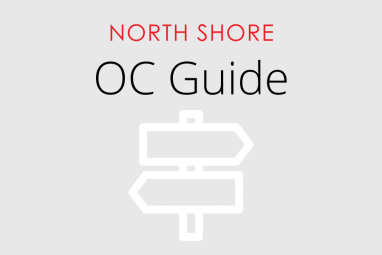[NSW] I Can’t Spell!
By NSW Principal – MR TONY HANLON

How do you eat an elephant?
Where to start? At the ears or at the tail?
Either way, it seems a mammoth task (pardon the pun).
Well, the answer is quite simple: you start with one, small mouthful.
Whilst this may seem a frivolous opening to my article, it is relevant when discussing the importance of spelling, so please bear with me.
For many students, spelling can appear a mammoth task. They see a difficult or long word in its entirety; instead of seeing it as smaller, easier parts of a whole. When faced with the seemingly daunting task of spelling it can form negative impressions of the English language. It can affect self-esteem and diminish the joy of learning.
It is concerning that many adults carry negativity about their own spelling ability and see their failure as something they could not control.
As an educator with over 40 years practical experience, I have heard parents make statements such as:
- “I was always a bad speller; I suppose my son inherits that from me” or
- “I’m hopeless at spelling, it’s something I always struggle with” and even
- “I’ve given up trying to improve her spelling”.
Except in the case of rare and specific learning disabilities, we can all improve our spelling skills and, dare I say, become great spellers.
Spelling Success is Reading Success:
Learning to spell stimulates the development of phoneme awareness and letter knowledge — two of the most important prerequisites of reading development.
Because words are not very visually distinctive (for example, bar, ban, bane), it is impossible for children to memorise more than a few dozen words unless they have developed insights into how letters and sounds correspond. Learning to spell requires instruction and gradual integration of information about print, speech sounds, and meaning – these, in turn, support memory for whole words, which is used in both spelling and sight reading.
Or, to put it simply in the words of developmental cognitive scientist, Linnea Ehri,“Learning to read and learning to spell are one and the same”.
Teaching spelling:
Research suggests that explicit (direct and intentional) spelling teaching, where spelling is the focus of dedicated teaching time, is more effective than incidental or casual methods. Studies have shown that while incidental learning from reading and writing activities occurs, it tends to be modest compared to the gains seen with explicit teaching. Recent reviews and meta-analyses of research data support these findings, indicating that explicit teaching leads to greater improvements in spelling skills.
This is why, at North Shore, we proudly place significant emphasis on spelling. Both research and practical teaching experience support our approach.
How to Help at Home:
To boost your child’s spelling success, it is a good idea to give them a mid-week test of the spelling list. This will allow them to see the words they now know, and which words still require attention prior to the test in their next lesson.
It is never as bad as it seems:
When a child tells us they cannot spell a given word, we must ignore the impulse to accept this information. The truth is they can spell at least half of the word and need just a little help with the trickier part. For example, the word, ‘beautiful’ – the student may recognise it commences with a ‘b; and is able to spell the ‘tiful’ ending. The vowel arrangement of ‘eau’ is the only part they actually have to learn. So, the reality is that they could spell 67% of the word.
When encouraging a reluctant speller, we need to start at this positive mindset. Pointing out they are more knowledgeable and capable than they believe.
Do we even need to know how to spell in 2024?
Absolutely.
Even with search engines, spell check and AI applications, we still need to recognise the correct form of words. Correct spelling allows us to effectively communicate with others. When we are typing, the spell checker may give the option of a few words – if we are not effective spellers, we can easily choose the wrong option.
Spelling Strategies to try at Home:
1. ‘Chunking’ for Difficult Words:
Chunking is when we break a word into pieces (chunks). Learning each chunk is easier than remembering individual letters. There is a much greater chance of the correct spelling transferring to long-term memory by using this strategy. Look at the examples below:

This method will work for even the longest and most fantastic of words. The joy of conquering a word that seems impossible to master!

Consider the above example, the word ‘straight’.Most of the words can be spelt out – it is phonetic. In fact, half of the words are easy to spell when said aloud. The only small challenge is learning the ‘aigh’ combination.
2. Colour Combination Practise:
Effectively practising a spelling list each day will significantly develop spelling skills.
The keyword in the previous sentence is ‘effectively’. For example, writing out the list while watching TV will be a waste of time, however, writing out the list in a colour combination such as red and blue will be much more effective.
This method requires the use of two sharp pencils or pens – red and blue. The blue is used for the ‘easy’ parts of the word the student alreadyknows or are phonetic (can be sounded out). The red is used for ‘difficult’ parts including vowel combinations. Look at the examples below:

Of course, the idea of ‘easy’ versus ‘difficult’ will vary from person-to-person. The colour combination method will take a little more time than writing in a single colour, but the benefits will be worth the extra time. Any homework that can be finished quickly, with little effort will not be of use to the learner. You may notice that the chunking and colour strategies can be equally effective.
3. Look, Say, Cover, Write and Check
The ‘Look, Say, Cover, Write, Check’ strategy is where students:
- Look closely at the word – look for letters that go above or below the lines, double letters, etc
- Say it aloud twice
- Cover it up with their hand
- Write the spelling next to the original word
- Check their version to see if they got it right.
How to become a great speller:
These strategies will bring success. It is merely a matter of sustained effort and time before you will see success. I cannot overstress the importance of sustained effort.






